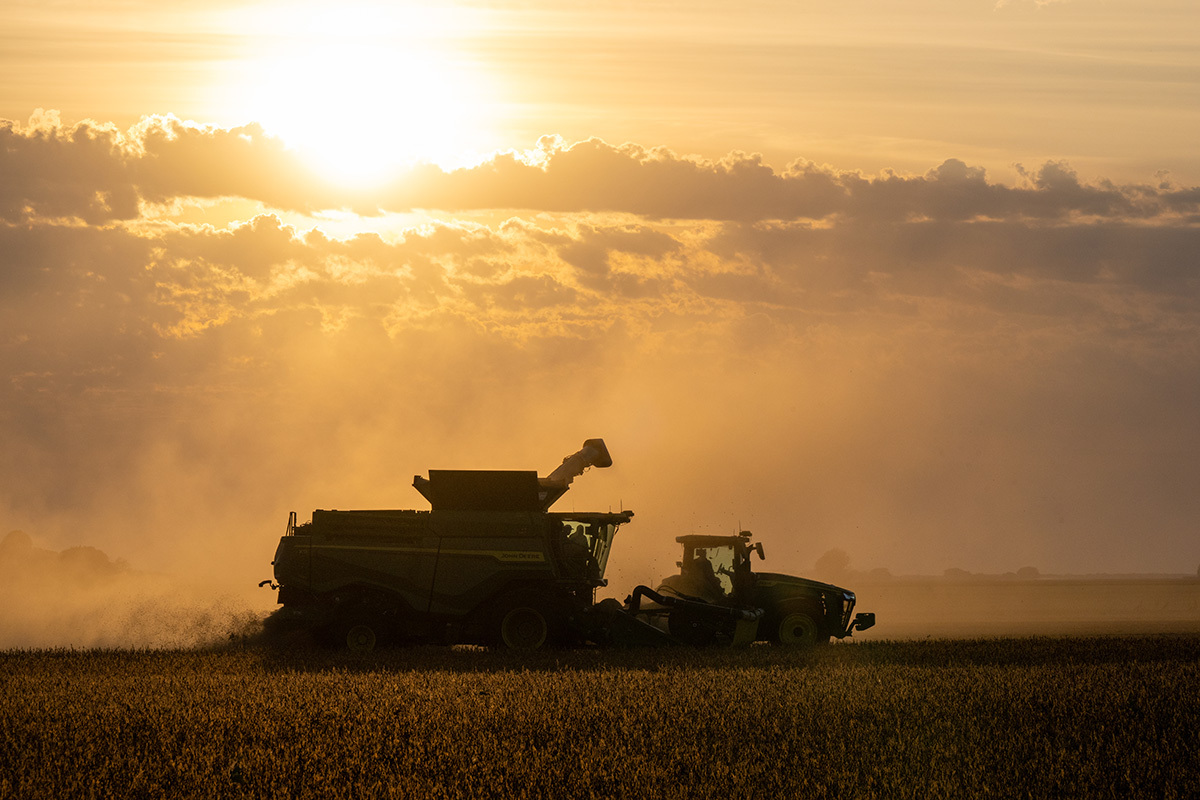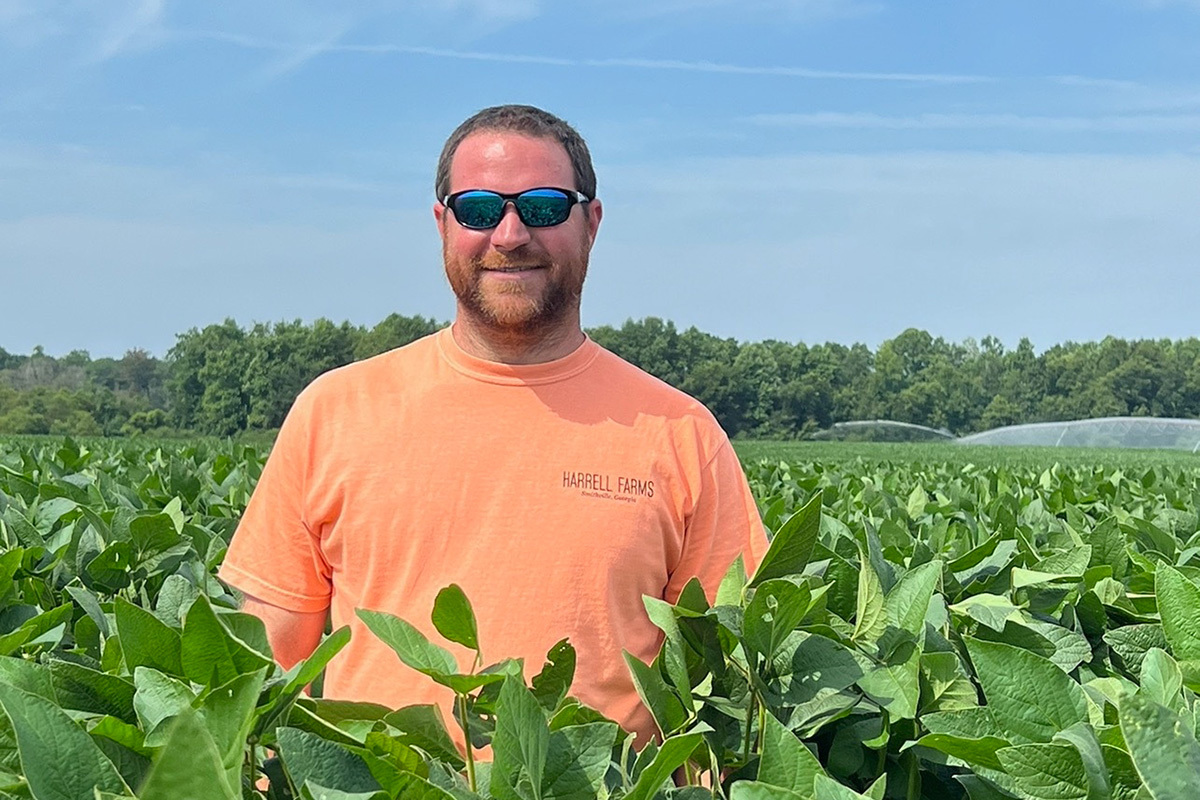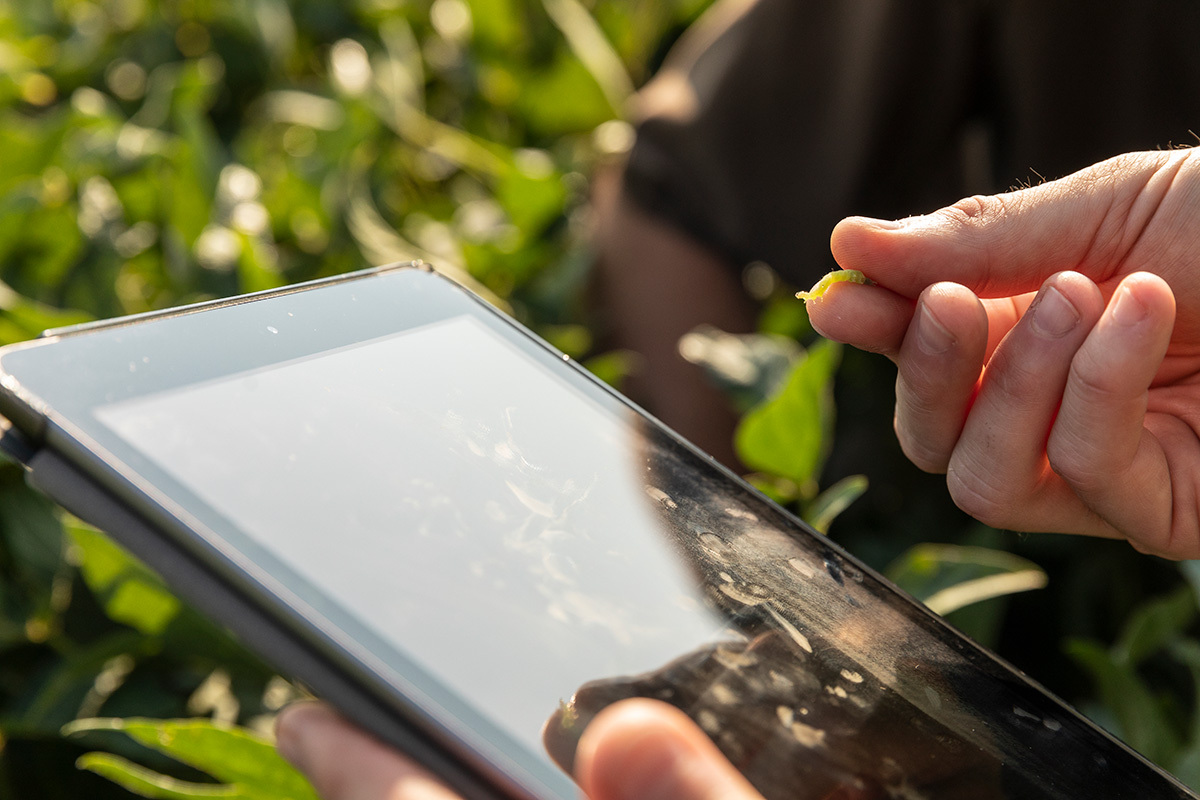Facing COVID-19: How Farmers Are Managing On and Off the Farm
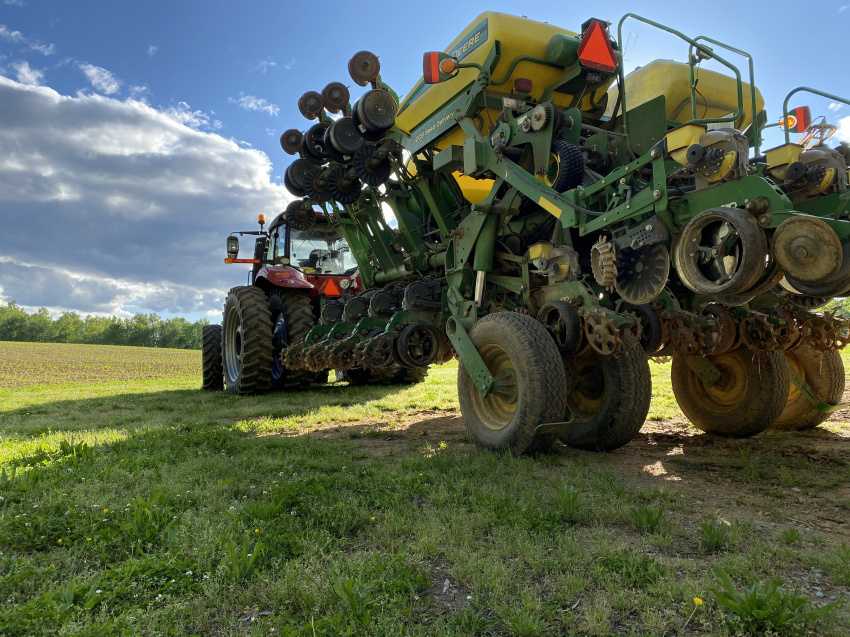
Upside-down routines, changing information and new normals.
The COVID-19 pandemic has affected the world in unprecedented ways, from the urban corner shop to the rural feed store and almost everyone’s day-to-day life. Largely, the planting season is winding down on the farm, but COVID-19 has brought plenty of change to how and what farmers are doing everywhere in between.
Managing Crops and Kids
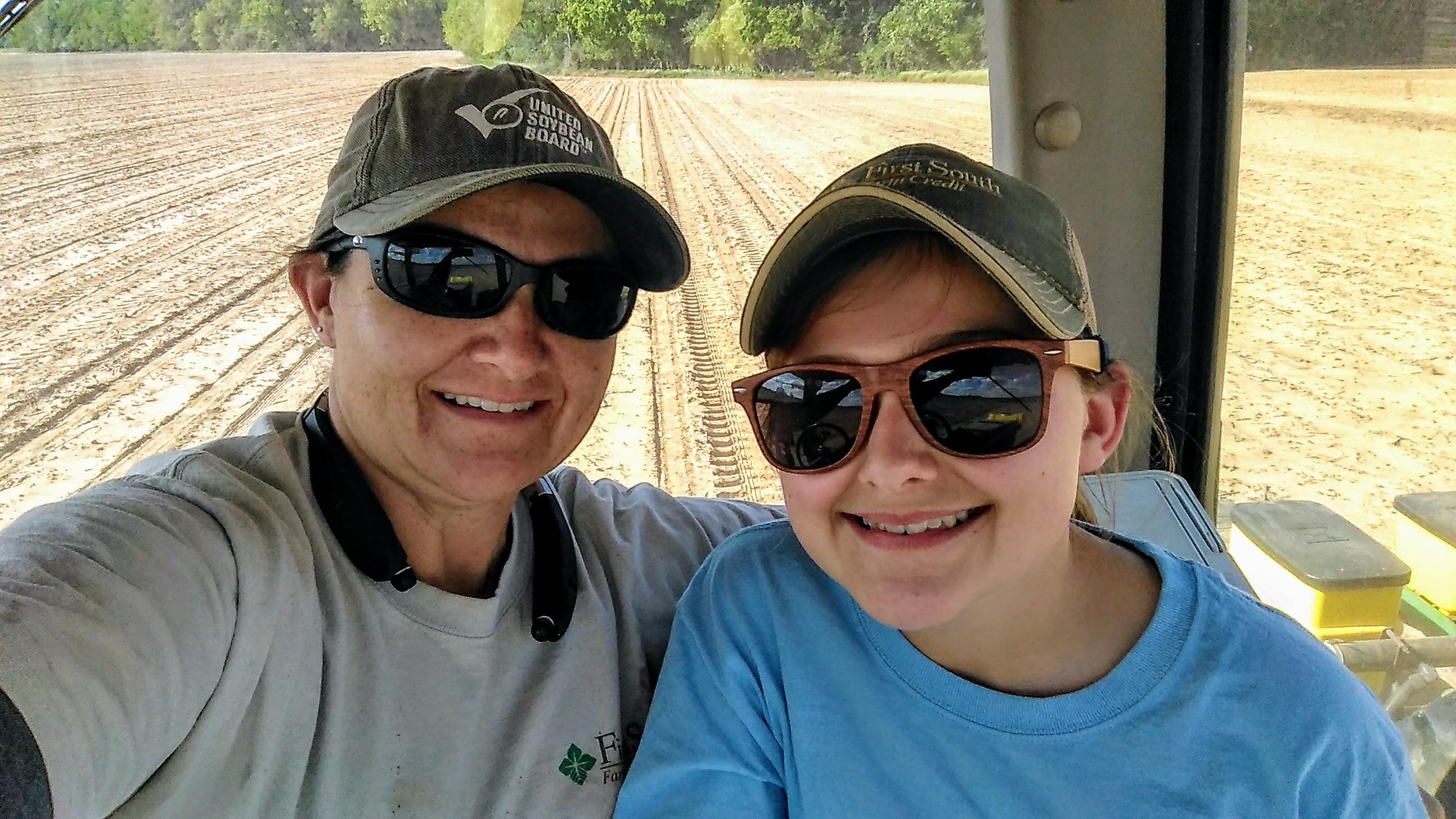
and her daughter Casey.
In Orrville, Alabama, soy checkoff Farmer-Leader Wendy Yeager found herself not just running Bell Place Farm. She was supervising the education of her two children: Casey, 12, and Lillian, 10.
Casey and Lillian began online learning in mid-March and finished their school year virtually.
Yeager said she and her family found their groove after a few weeks of online learning. Their day would start at 8 a.m. The iPad and laptop got fired up, and the school bell rang — figuratively. Then, around 11 a.m., class was dismissed, and Yeager headed out to the field. Sometimes her girls joined her for some on-farm learning.
“When I was doing burndown, it was nice to have Casey. She could help bring me something if I needed it,” Yeager said. “Plus, they see what Mama does.”
Yeager is the sole operator on the 1,000-acre Bell Place Farm while her husband works full time off the farm for Auburn University Black Belt Experiment station. The family farm grows cotton, peanuts, soybeans, sorghum and wheat. Beyond the row crops, she found other opportunities for hands-on learning at home with baking and gardening.
But homebound learning was not without challenges. Despite slow rural broadband and overworked online school software, Yeager chose to see the positives of the situation.
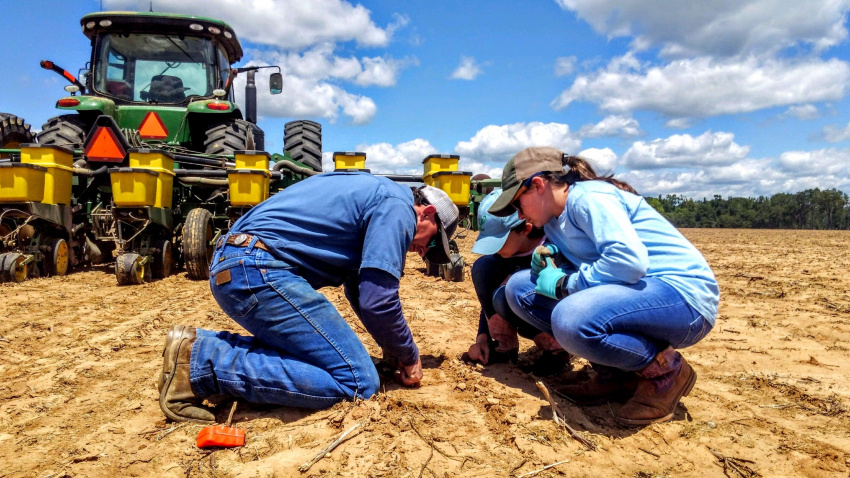
Lillian and Casey about seed depth, spacing and population.
“There’s always a silver lining in every single cloud,” she said. “Sometimes you have to look for it. But we’re all healthy, happy at home. And we don’t have obligations pulling us in 50 different directions.”
The family’s fast-paced life slowed down some, with minimal trips to town and no extracurricular meetings or activities.
“I’ve embraced not going here and there. At this stage in life, when you’re in your 40s, typically you’re on boards and committees. Then your kids have dance practice, softball and all these other things going on. Sometimes I feel like a chicken with my head cut off, running around trying to get it all done.” Yeager laughed. “It’s been nice to not have to go, to just be here on the farm and do what needs to be done.”
Yeager balanced their schooling with planting — and that takes flexibility — but they learned important lessons they aren’t likely to forget in both cases. Now, Yeager is grateful for the summer break taking school off her list for now.
Thinking Ahead
Don Wyss, an Indiana farmer-leader, also had to adjust his daily life due to COVID-19, and his family has played a big role in getting through it together.
While Wyss’ daughter, Addison, 3, has been able to go to daycare, Wyss’ son, Andrew, 12, did online learning for the remainder of his school year. Thankfully, with a retired teacher as a grandma, Wyss said Andrew enjoyed daily “g-school” or “grandma school.”
Thankfully, this helped Wyss focus on the challenges he faced preparing for planting corn and soybeans this year. For starters, they gathered all the supplies they needed, or thought they might need, to kick off planting.
“Our biggest area of concern was service. Not only from a product standpoint, but for any issues with technology or any breakdowns that could require parts or services to the field,” said Wyss.
This is where his planning helped. “We tried to be proactive to get any products that we could early,” he said. “We had multiple conversations with our suppliers so we would be aware of any changes in the level of their services or any issues that could arise.”
Another piece of the planting puzzle was labor. Wyss said the multigenerational, family-run farm usually employs five seasonal helpers. But due to COVID-19, they were one man short this year.
“We have to fill the void of one of our key seasonal helpers. He’s been a good, dependable employee that we’ve come to trust and rely on,” Wyss said. “But, we completely understand the decisions he has had to make.”
Despite the preparation and uncertainty, Wyss said he’s enjoyed having more time with family and rebuilding the engine in a Farmall 560 with his son.
“It’s been nice, in a way, despite the circumstances,” said Wyss. “We’ve had more time as a family.”
Pandemic Meets Small Town
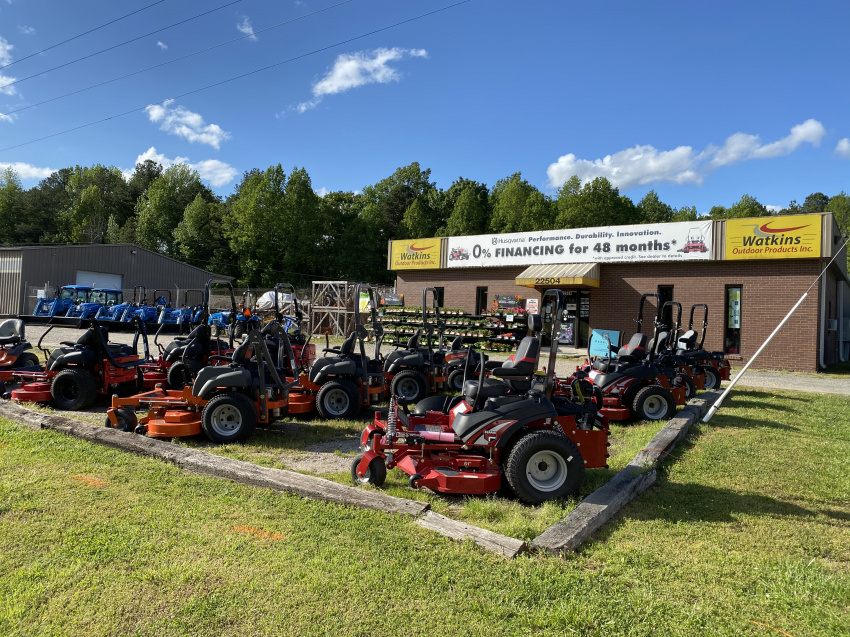 In Sutherland, Virginia, Susan Watkins has worked to keep her family business open and farm moving ahead.
In Sutherland, Virginia, Susan Watkins has worked to keep her family business open and farm moving ahead.
Watkins Outdoor Products is considered essential due to the important supplies they offer and has remained open during the stay-at-home orders. Watkins is not only thankful she gets to keep the family business open, but also that she has been able to keep on her two employees while millions of other Americans have found themselves without jobs.
“It changes day by day. We’ve sectioned areas off. We’re trying to keep our customers, staff and ourselves as safe as we can,” said Watkins. “I think everybody has gotten used to it and accepted it. We’re all in the same boat.”
Watkins said her family’s store recently started selling seed and feed, which has become an essential part of their business during COVID-19 and a much-needed supply for her community.
“That’s what’s keeping us going. That’s where we’re getting repeat traffic and sales,” said Watkins. “The mower sales, the bigger ticket items are just not selling right now because people are so unsure of their income. They’re hesitant to make big purchases. It’s been a blessing we picked up the feed and seed when we did.”
Continuing to support other small businesses in her small town has been a priority for Watkins and her community.
“People are opening their eyes to small business. Whether it be agriculture or any other small business, people are supporting each other more,” said Watkins. “We’ve always supported ‘mom and pop’ businesses. And doing so now is important.”
For the future, Watkins said she’ll continue to take it day by day, running the farm and the business safely and doing the best she can to support her community.
As change and uncertainty affect everyone’s lives, those on the farm are adjusting, too.
“It’s not just one person’s story,” she said. “It’s everybody’s story right now.”

